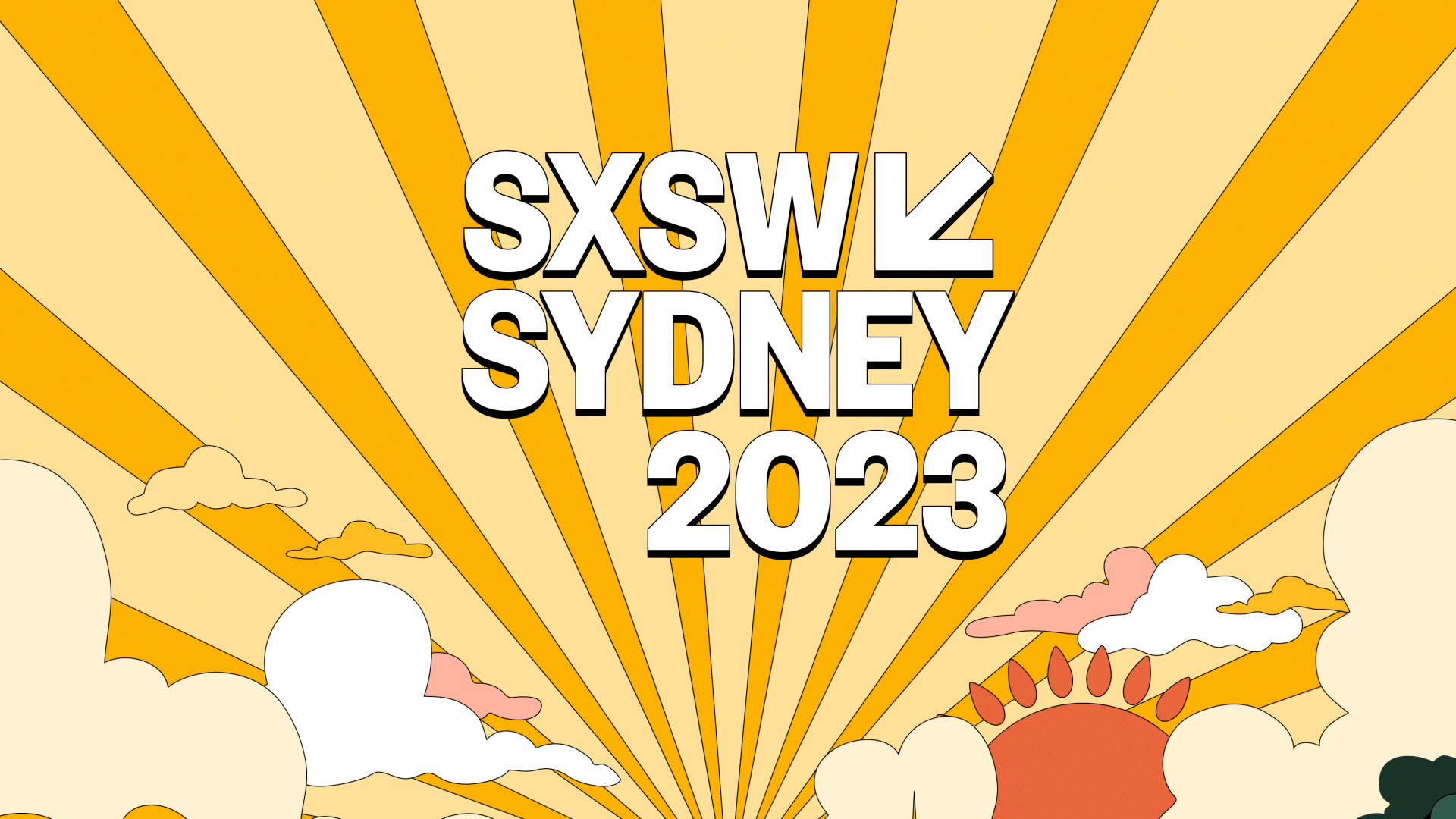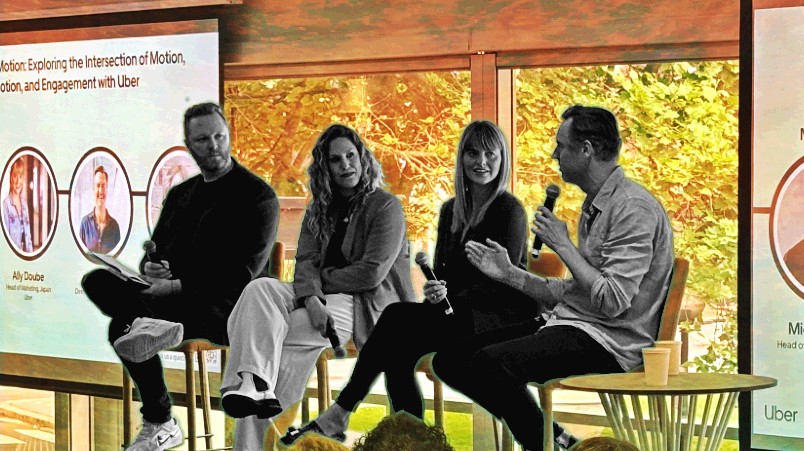SxSW Daily Wrap - Tuesday: Poachers trusted but not the game keepers; GroupM global boss Christian Juhl on why AI – and Australia – makes better ads; Seven does the numbers
An Mi3 editorial series brought to you by
7 / 7plus


Can't make every session at SxSW Sydney? Fear not. The Mi3 team is on the ground with this daily wrap of bits, bytes and banter from SxSW sessions, speakers and conversations each day. Here's the latest of Mi3 dispatches from Tuesday 17 October.

The SxSW precinct has had a mixed bag of weather – some blue stuff dotted with patches of drizzle... all day
Media v Business: Punters trust poachers over the game keepers
The seriously poor regard in which journalists are held by the community was a meme before memes were even a thing (we routinely scrape the barrel bottom in the list of trustworthy professions, keeping used car salesmen company). But now trust in the very institution of media is underwater says Guardian editor-in-chief Lenore Taylor (although she notes that her own masthead and the ABC are still well regarded.)
In a session titled Reimaging News Media and Business, trust was the central theme Taylor that fellow panelist Marina Go (chair of Adore Beauty and a director of multiple ASX businesses) both addressed.
"It's an issue that we really need to think about because what we do as an institution is the job of holding all the other institutions to account. So if people don't trust us, it's not just a problem for us, it becomes a systemic issue."
Taylor pinned much of the blame on digital platforms. While these delivered much bigger audiences they also degraded the very trust those audiences have in media for a variety of reasons. Firstly, social platforms are riddled with misinformation meaning professional journalism is given identical weight to misinformation, or to quasi news outlets whose business model is simply reinforcing the prejudice of its audience.
Or as comedian Aziz Ansari once famously observed, "We have all become trapped in our own algorithms."
Ironically (and some might say poetically) some media companies have themselves also become trapped by the same algorithms with which they set out to capture audiences with. Taylor gave the example of News Corp's Fox News. It settled a defamation case with Dominion Voting Systems earlier this year for over US$787.5m which proprietor Rupert Murdoch assumed might only cost the firm US$S50m, according to journalist Michael Wolff. Taylor noted that Fox so thoroughly inculcated its audience with lies about the US election that it couldn't back out without risking serious audience repercussions, and so it kept airing allegations it knew were false.
But while media may be on the nose, the institution of 'Business' is on a trust bender. (Bear in mind this is the same institution that has hoovered up nearly all the productivity gains of the last decade for itself while attacking working conditions and resisting even insipid wage growth – so much for media scrutiny.)
Unlike the media companies that Taylor thinks should be holding business to account, Marina Go, citing Edelman data, said trust in business out in the community is apparently running strong.
"Business is the only institution that is seen as competent and ethical," she said.
Per Go, Covid played a big part in that.
In the face of a crisis that most people had never experienced in their lifetime, businesses stepped in to fill the vacuum created by the decline in trust in institutions like government and media, she said.
"So we were literally in their lounge room or bedrooms because they were sitting behind the screen, and we had to care [for them]. And they were looking to us for information about what was right or wrong. In some cases, we were organising for them to be vaccinated." - Andrew Birmingham

The New York Post famously holding headless bodies in topless bars to account
Gallop wants marketers to channel Magic Mike and reinvent aspirational marketing
Cindy Gallop, the self-professed Michael Bay of business, consultant and former BBH US founder wants to blow up the stereotypes and misogyny that she says have held back female leaders, house husbands and stigmatised sex. She has argued that marketers too often fall into the trap of perpetuating cliches and stigmas established through the lens of rich, white men. She wants to inspire a new wave of role models and female leaders to embrace aspirational marketing 2.0. Check out the full story here. – Arvind Hickman.

Cindy Gallop: “We need to move away from just making good advertising to making advertising that does good, and that is eminently doable" Pic: Brendon Thorne/Getty Images for SxSW Sydney
Seven's getting the numbers
It’s been a stellar start to the inaugural SxSW Sydney for major sponsor, Seven Network, and its two-storey house in Tumbalong Park. On the first official day of industry proceedings, the activation registered 1,200 attendees to its mix of panel sessions, coffee lounge and networking hub, while 1,100 made their way through the glass doors on day two. More than a few high-profile and formerly listed CMOs enjoyed a Four Pillars Gin before they joined a closed-door presentation by futurist Amy Webb to discuss the power of ‘what if’ featuring Telstra’s Brent Smart. And more than one wanted to remind this journalist of the power of peer-to-peer industry recognition and connection. – Nadia Cameron

From cinema to SxSW: Seven has lifted its game in the delivery of this year's upfront event

Paul Martin on making sports documentaries that cut through and create noise. Pic: Brendon Thorne/Getty Images for SxSW Sydney
GroupM global CEO: AI can make ads better; Aussies and Kiwis still win for laughs
GroupM’s global CEO Christian Juhl believes in the power of advertising to change culture for good, but admits that is not always up to scratch right now.
In a conversation at SxSW with Nine’s Brooke Boney, he said: “I really do believe that advertising has an important role to play in the world… and I don't think advertising is very good today. We should do a better job of reporting the data that we give advertisers, the data that we give our partners in order to get better personalisation to get more value.
“Advertising needs to earn its place in the world and right now, it doesn't always do that," he said. “We need to work with the supply side of the business and on the brand side of the business to make advertising better.”
Juhl gave GroupM’s ANZ CEO Aimee Buchanan a big wrap. Her standard, he said, is applying “100 per cent of myself, 100 per cent of the time” to issues that matter to clients and society, such as how to ensure media investment is responsible across stakeholders and the supply chain.
The San Francisco native and founder of Essence, who has risen to lead GroupM globally, reckons AI technology will become a fundamental part of media planning in the next few years.
“I've always said [media agencies] are going to be largely more software-driven and look more like software companies; predominantly our staff will be engineers versus planners. “That's already proving out… at a much faster rate.
“We are forecasting about 50 per cent of our current campaigns will be impacted by AI by the end of this year. And next year, you'll probably see 95 to 100 per cent. New jobs and skill sets will be created in our industry.”
He remains optimistic about the value of AI to power mass personalisation, customisation and value.
“On the more optimistic side of this is, I used to say that probably half the advertising in the world was crap and should go away. With AI marketing, you’re going to end up with even more advertising that is valuable.”
Juhl had glowing words about innovative advertising across India and China, but reserved special praise for the local lot – “There is no science behind this whatsoever, but the funniest ads I saw have come out of Australia and New Zealand.”
Know you audience eh? You can come back, Christian. - Arvind Hickman

GroupM Global CEO Christian Juhl in conversation with Nine's Today presenter Brooke Boney

Uber attention (l-r): Uber's Head of Advertising Sales, Michael Levine; Special Group's Head of Strategy Celia Garforth; Ally Doube, Uber Japan Head of Marketing and Andy Morley, Uber APAC Director of Marketing
